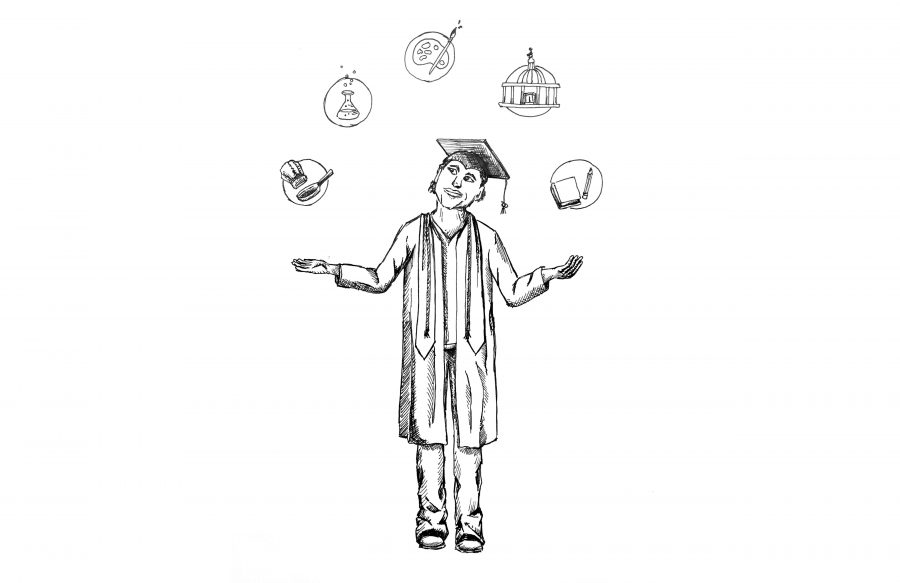You’re dumb or smart. You’re left-brained or right-brained. You’re artistic or analytical. You’re extroverted or introverted. You’re categorized, compartmentalized and constrained.
When it comes to academic identity, we define intellect in comfortable and familiar terms. In a competitive college environment, clarity of our strengths and weaknesses is convenient and reassuring. However, because we label so often, stereotypes and assumptions are commonplace. Myths that equate identity with academic ability restrict the individual. Let’s stop asking the go-to question “what’s your major?” Students’ interests shouldn’t be restricted by their major, because that assumption minimizes their individuality.
Stereotypes are attached to almost every major on UT’s campus. “People always assume engineers are weird and hard to talk to,” said petroleum engineering junior Jorge Burgos. When these assumptions are constantly applied, consequences arise.
A social phenomena known as the majority effect occurs when individuals mold their perspectives and ideas to conform to the people around them. Because he’s an engineer, Jorge says, “I find myself questioning my ability to talk and connect with people. It feels like there’s an expectation to only work.” Because of this, stereotypes can be self-perpetuating as they become internalized, accepted and eventually expressed.
Strict belief in intellectual ability can also be confining. “I didn’t enjoy physics at all in high school, I just figured it wasn’t for me.” says advertising sophomore Matt Thomas. A rigid mindset of your intellectual abilities can restrict learning and engagement with new topics.
A 2015 study analyzed the mindsets of two groups of students. One group believed ability and intellect was fixed while the other believed it to be malleable. Over time, the students who believed intelligence was flexible were three times more likely to score in the top 20 percent of their class.
The ability to think beyond your major is especially important when you’re outside of college. Only around 27 percent of college graduates actually have a job related to their major. A rigid academic experience could diminish hireable skills outside of your respective major. While you shouldn’t try to major in as many areas as possible, a willingness to engage with new topics can be constructive, fulfilling, and practical.
“I wish I could take more classes that involve public speaking and communication,” said Burgos. Next time, when you plan to break the ice with someone by asking their major, ask what their interests are instead. Only seeing someone through the lens of their major can diminish their uniqueness.
Martinez is a government and Plan II junior from Austin.





















